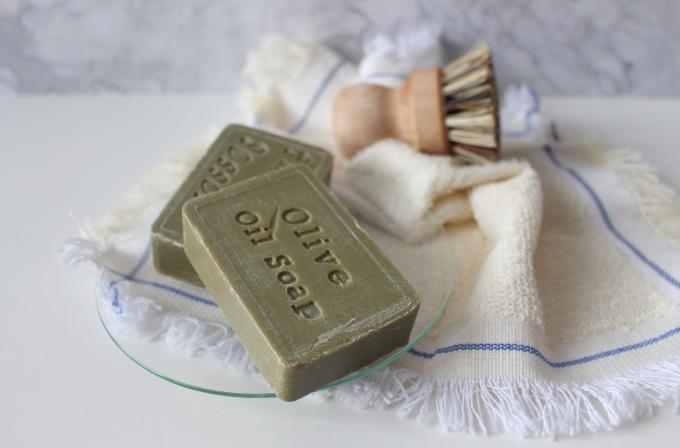
The bathroom can be a place filled with plastics, from shampoo bottles to toothpaste tubes, and usually these are all single-use or non-recyclable plastics that end up in landfill or polluting our environment. It was found that 120 billion units of packaging are produced each year by the global cosmetics/personal products industry- most of these non-recyclables1.
There are still many products that can be recycled, like shampoo bottles, however even though recycling practices have increased over the years, still only 32% of plastics actually make it2. These plastic bottles that don’t get recycled never fully decompose, they break down into smaller and smaller microplastics that end up in the ocean.
There are now many plastic free options for bathroom products. See below for ideas of items you could stock to reduce the use of plastics in the bathroom.
Can you reduce the amount of plastic in bathroom products you stock, or choose those which don’t contain any plastic at all?
Can you create a refill station for products like soap, shampoo and conditioner?
- Alternatives -
Shampoo and Conditioner Bars
Pros:Shampoo and conditioner bars remove the need for plastic bottles, and they often come in cardboard or paper boxes that are fully recyclable. They are also very long-lasting (they can last 2-3 times longer than a regular bottle) making them cost-effective for customers.Cons:Some customers may find that shampoo bars do not suit their hairSuppliers:Friendly Soap, The Good Soap Alter /nativesRecycling:Only the packaging will need to be recycled, the shampoo and conditioner bars will be used until they have run out.Natural Body Brushes and Loofahs
Pros:Scrap the mesh, plastic shower loofah and stock up on brushes made from natural bristles and wooden handles. The materials used mean they are fully biodegradable and compostable.Cons:The price is generally higher for body brushes and loofahs made from natural materials.Suppliers:Ecco Verde , Amphora AromaticsRecycling:Those made from wood or other natural items can usually be recycled or composted.Bamboo Toothbrushes
Pros:Bamboo toothbrushes are biodegradable, whereas plastic toothbrushes can last in landfill for hundreds of years. Bamboo grows very quickly making it a sustainable resource, and it is a non-splintering as well as being a known antibacterial, antifungal, and antimicrobial material.Cons:The bristles can be made of non-natural fibres, so they are not always plastic-free. The prices are generally higher than for typical toothbrushes.Suppliers:World of Bamboo, Eco-BruRecycling:Remove the bristles with pliers or remove the head of the toothbrush, then the rest of the toothbrush can be composted.Plastic Free Toothpaste
Pros:Toothpaste tabs can be used instead of the typical gel toothpaste, therefore removing the need for plastic packaging.Cons:Prices are higher than for standard toothpaste.Suppliers:Brush Fresh Co.Recycling:Only the packaging needs to be recycled for this product. If you do stock toothpaste tabs, try to choose suppliers which provide them in easily recycled packaging.